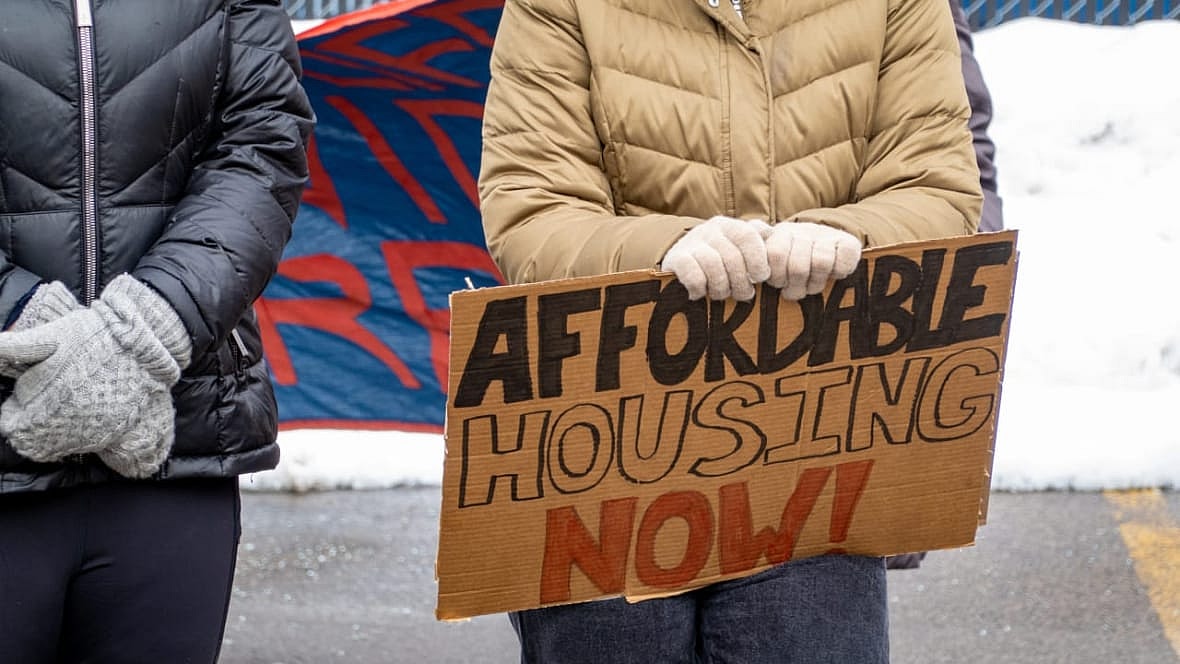The California Civil Rights Department has filed its first lawsuit alleging Section 8 discrimination.
According to the Los Angeles Times, landlords Carlos and Linda Torres are accused of illegally harassing their tenant, Alysia Gonsalves, and sending her an eviction notice stating that they “decided to remove [the] house from Section 8 program completely.”
The notice came after the tenant refused to make additional monthly payments to the Torreses that were neither required nor permitted by the voucher program, according to the lawsuit, filed last month in Sacramento County Superior Court and announced Wednesday.

Gonsalves informed them that evicting her for that reason was unlawful. The landlords then harassed her, threatened her with violence, and eventually “unlawfully locked her out of her home,” the agency claimed in a news release.
The lawsuit claims the Torreses declared they were “not here to support government leeches” and called the renter the N-word, perceiving her as Black.
Gonsalves, who has a physical disability, was also locked out of her home. The complaint claimed that she left behind furniture, medical supplies and cherished family items that the landlords refused to let her retrieve.
According to the lawsuit, many of her belongings were “damaged or destroyed” when she gained access months later.
Section 8 is one of the most effective strategies used by the federal government in its effort to combat homelessness and crowded housing.
Through the program, tenants can rent from private landlords with federal subsidies making up the gap between what tenants pay, about a third of their income, and what the actual rent is.
California landlords consistently rejected Section 8 voucher recipients, citing governmental hassles or a perception that they are problematic tenants.
Then a state law was enacted in 2020 making it unlawful to reject tenants who pay using subsidies like Section 8. Advocates claim that landlords’ judgments are unreliable and may be influenced by unfavorable stereotypes about low-income people and people of color, who make up the bulk of voucher holders.
While landlords aren’t legally required to rent to every Section 8 household, they cannot reject a tenant based solely on receiving a rental subsidy.
They also can’t treat voucher holders differently by raising the rent or denying them access to shared spaces like the gym or pool.
Tenant advocates claim that despite the new protections, voucher discrimination remains widespread. They have urged state and municipal authorities to step up enforcement and inform landlords about the 2020 law.
The Civil Rights Department is seeking financial compensation on Gonsalves’ behalf, alleging the Torreses discriminated against her based on her race, color and disability. Attempts to reach the couple for comment were unsuccessful, the L.A. Times reported.
“Throughout the State, rental housing costs are climbing further out of reach for many Californians,” department director Kevin Kish said when announcing the lawsuit, according to the Times. “Source-of-income discrimination by housing providers exacerbates this trend and is unlawful.”
TheGrio is FREE on your TV via Apple TV, Amazon Fire, Roku and Android TV. Also, please download theGrio mobile apps today!

